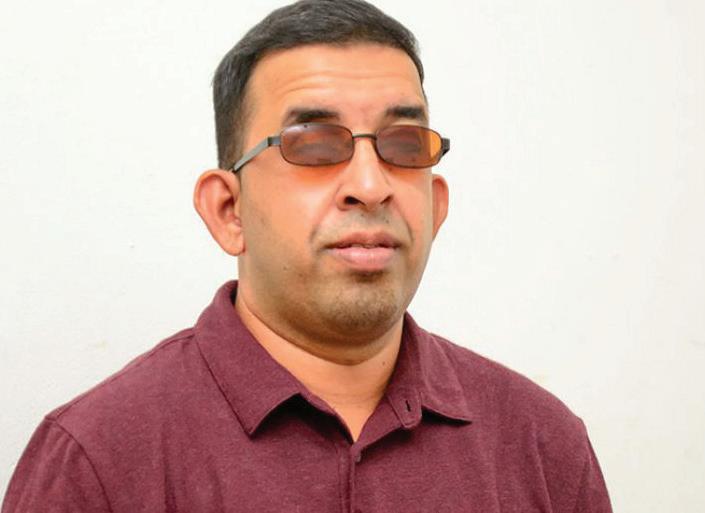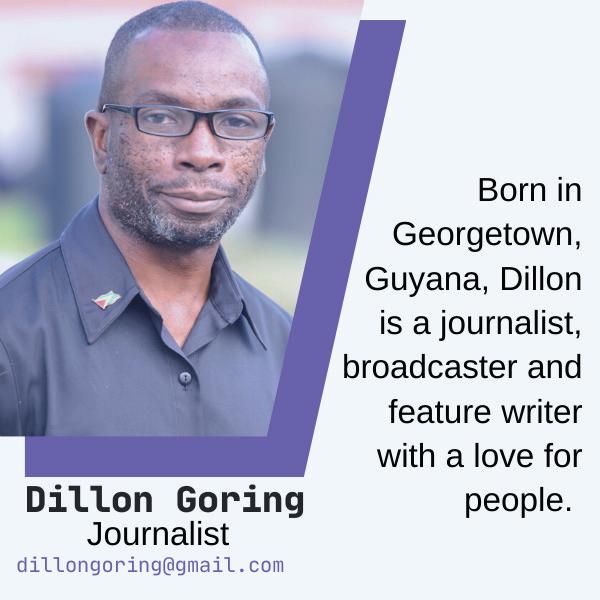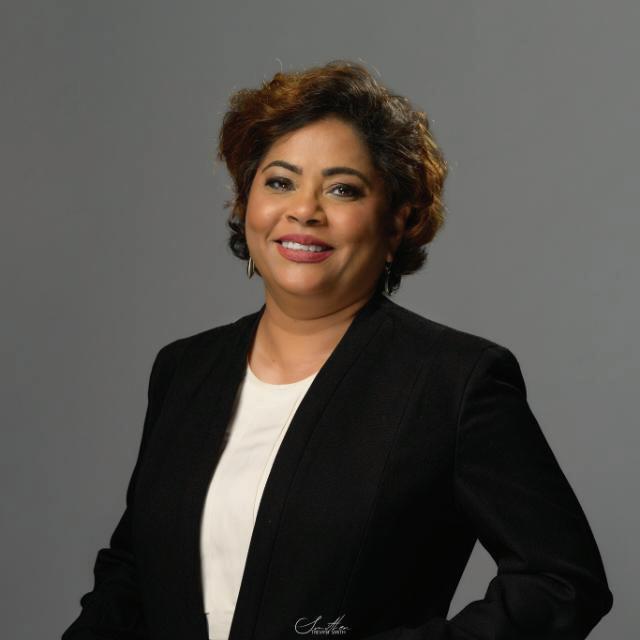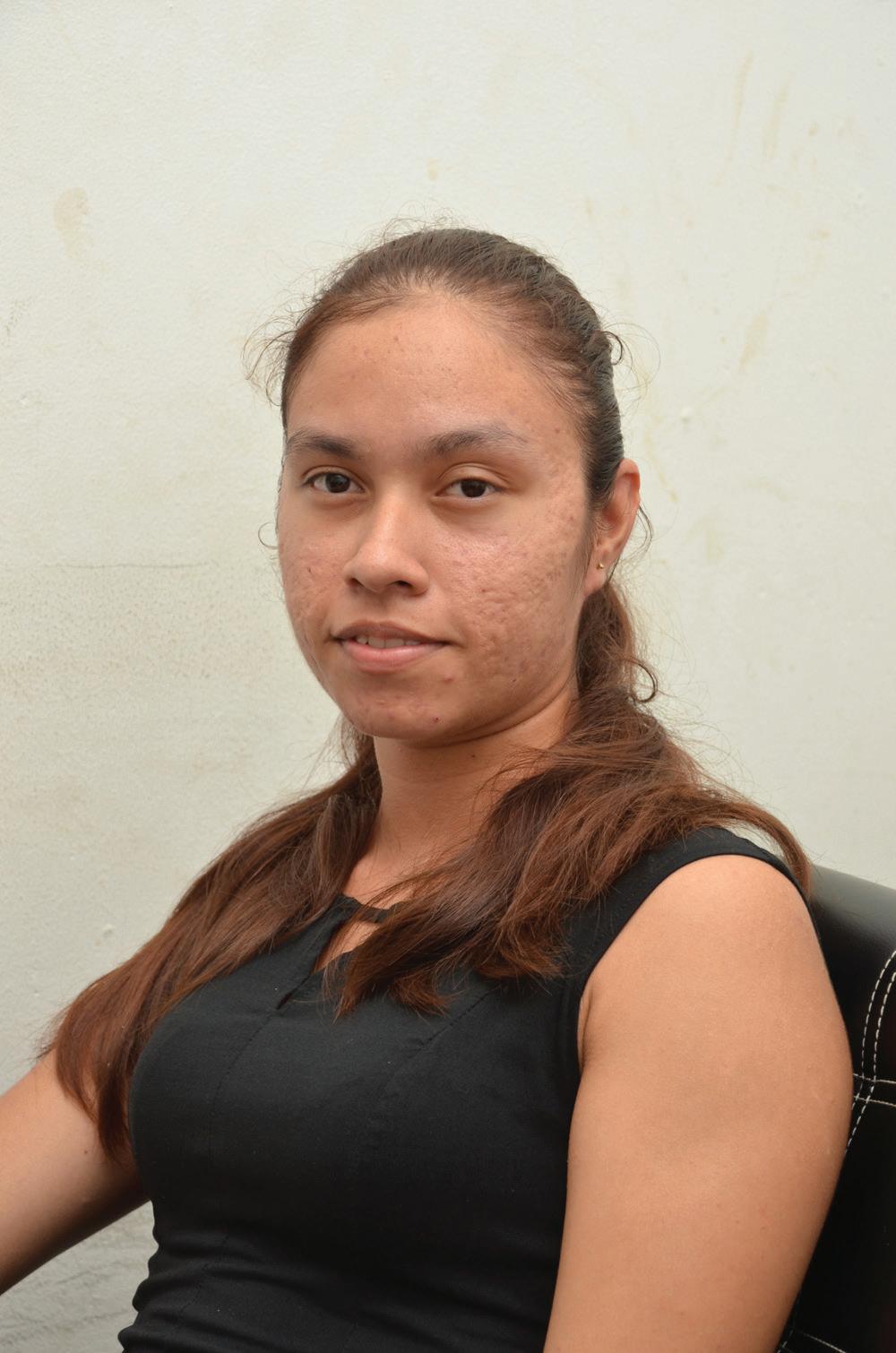
4 minute read
APerson...
FROM everyday.
Laws and Human Rights for persons with disabilities
Advertisement
The PepperpotMagazine sat down with Ganesh Singh from the Guyana Council of Organisations for Persons with Disabilities (GCOPD). To understand the legal aspect of accessibility for people like Ray, we asked what the laws were concerning people living and working with disabilities.

many challenges in her career.
“There were many challenges that I faced since I came to Carnegie, one of them was the fact that I had to adapt to new teaching methods to stay relevant to this current generation, who wouldn’t understand the unorthodox method of teaching that was previously during my time when I was growing up as a student /pupil,” Marshall explained. also spoke on accessibility, its forms and how it can be improved for each individual. She explained thataccessibility has two forms. “The first is access to the physical environment. This would involve ramps, accessible washrooms…utilising lifts, wide corridors and doorways... The other form of accessibility has to do with access to information. Having information in a format that is accessible to persons with disabilities. For example, someone who is blind would need to have their material in electronic format. Guyana is a very paper-based country that tends to make accessing information difficult,” she said.
She alluded to the fact that it is the duty of teachers to meet the demands of the current student population while at the same time being so aware of the challenges that students themselves facein and out of the classroom.
“For me, my work ethic is what brought me to work every day. Days when I am not so well, I still find the courage to come to work and to deliver because, in my view, if I don’t show up, I will put a team member at a disadvantage,”the principal noted during her interview.
“I always compare to what my children would face in school if their teacher did not turn up, and as such, I model that if my children have teachers like me, teachers who have impacted their lives versus a teacher who is not there, how it will either help or hinder their lives?” Marshall noted during her interview.
Overall, however, her passion is what remains for the profession. “I love working in the hospitality industry. I love that Carnegie is aligning itself with what the Government’s mandate is for tourism and hospitality,” Marshall said.

A typical day at Carnegie is very busy and demanding, she explained and there is much that she has learnt and continues to learn.
“The Guyana Persons with Disabilities Act clearly states no person with a disability should be discriminated against. Whether it’s in the recruitment process or during employment. There are clauses in the legislation that promotes and protects persons with disabilities. But we have not made significant strides in getting people employed, especially in the private sector. The majority of persons with disabilities employed are employed with government agencies and ministries. We have a lot of people with disabilities who are teachers, broadcasters, clerks and social workers,” Ganesh explained.

And although it is not yet perfect, Ganesh assures that with the continued help of the government, more persons with disabilities will be employed. “In the past two years, we have seen an increase with more persons with disabilities being employed in the private sector. And that is because of some of the work that we have been doing as well as the Office of the First Lady. Additionally, we would have 40 persons with disabilities employed under the temporary job programme. An additional ten are employed in region 10. We have made some strides. It’s a working progress. Now we are able to see the private sector be more willing to employ persons with disabilities,” Ganesh said.
The importance of accessibility
Rosemarie Ramitt, a special education needs teacher,
Rosemarie and Ganesh agree that transportation is among the biggest accessibility issues faced by persons with disabilities. “I know of many instances where wheelchair users are able to be employed because people are willing to employ them. But because of the lack of access to transportation, they may not be employed. In many cases, wheelchair users utilise taxis because it is very hard for them to get in and out of a minibus. And some minibus operators may not want to transport them. So that is a barrier. They can’t be employed because of the transportation issue,” Ganesh said.
Aside from the legal aspect, there is always the issue of stigma. There are certain narratives surrounding people with disabilities, and many of them should be changed. “We still have the issue of viewing disability from a charity-based perspective. And this means that the majority of society views a person with a disability as an object of pity and charity. The problem with that is that any service rendered to that person is done on that basis,” says Rosemarie. “Many people would say, ‘Why do you need a ramp if somebody is willing to lift you into the building?’ and that comes down to dignity. Because as a person with a disability, we are people. We have our dignity to maintain. And we should be treated with dignity, so it is a matter of human rights. That is the major challenge we have. We are trying to get people to understand that disability is not a charity-based issue.It is not a problem that can be fixed by giving a few hampers. It is a human rights issue.”
People with disabilities are people first. And their challenges don’t define them or place a limit on what they are capable of. These are sentiments shared by people like Ganesh Singh and Rosemarie Ramitt. And they are words that Ray Mohamed lives his life by.










